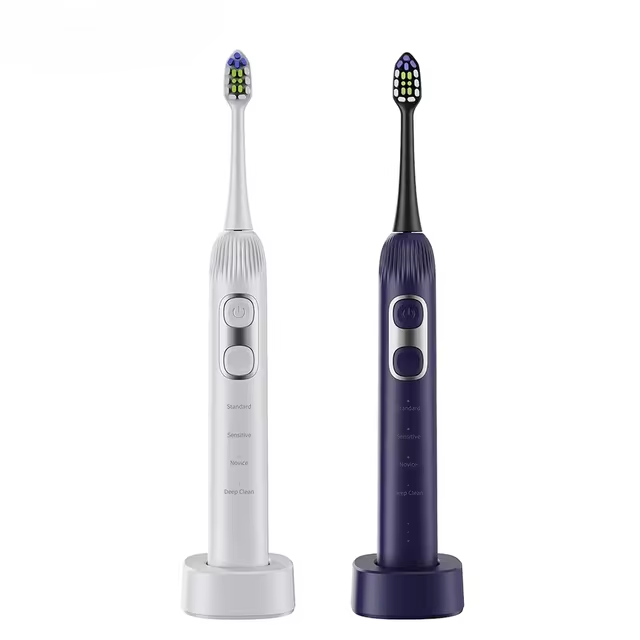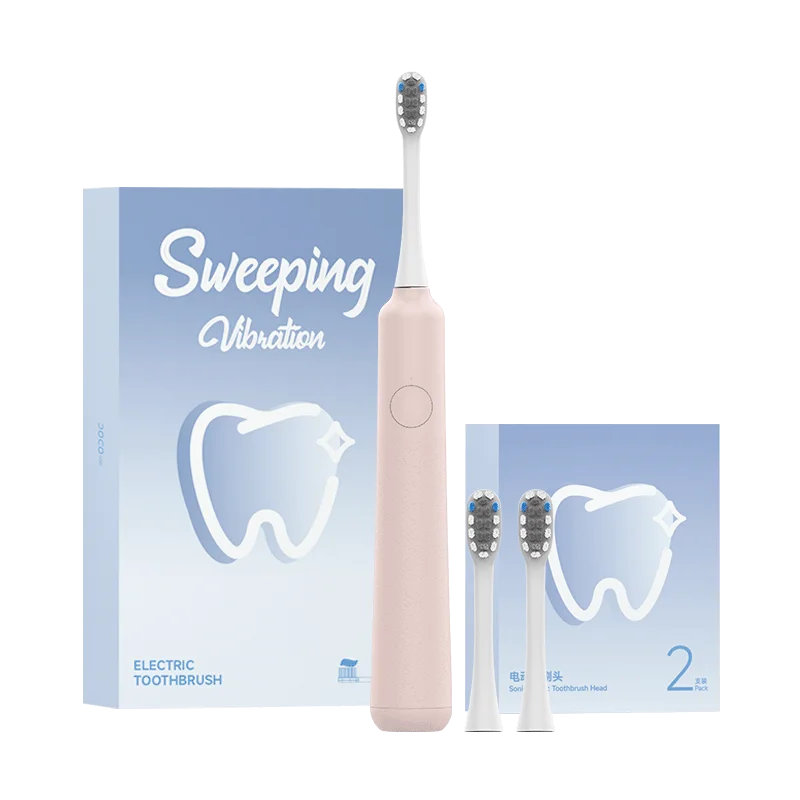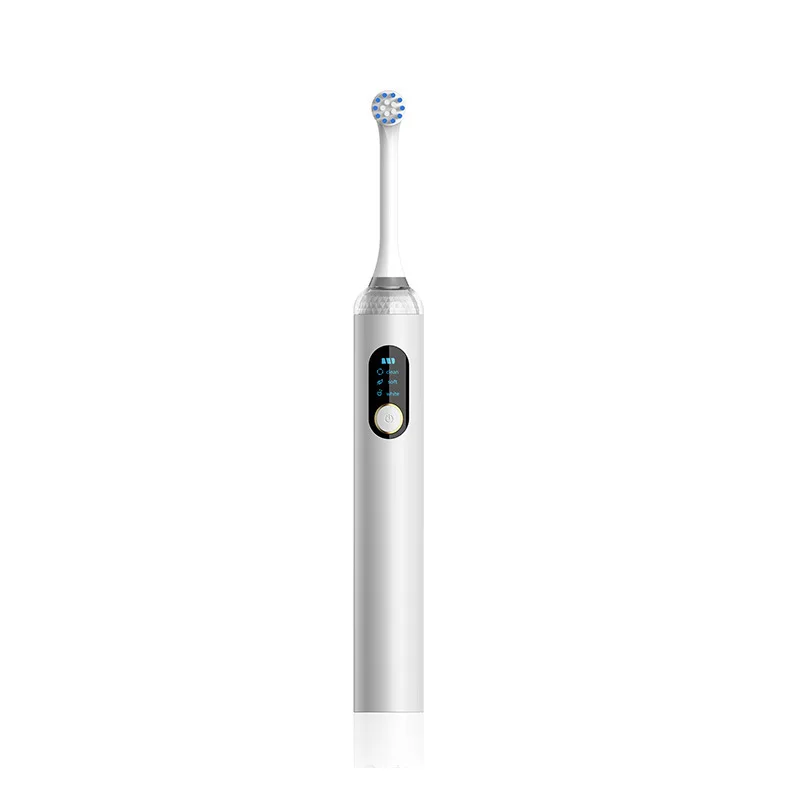Introduction to Electric Toothbrushes
When considering oral hygiene, the type of toothbrush you use can make a significant difference. Electric toothbrushes have gained popularity due to their advanced technology and unique features aimed at improving oral health. Unlike manual toothbrushes, their motor-driven bristles provide an enhanced cleaning action. Electric toothbrushes come in various designs, featuring oscillating, rotating, or vibrating brush heads. Their appeal is not only in providing a more thorough clean but also in their ability to ease the brushing process. Whether you have difficulty with manual dexterity or simply want a more efficient clean, electric toothbrushes offer a compelling alternative. However, it’s important to weigh both the pros and cons before deciding if an electric toothbrush is the right choice for you. In the next sections, we’ll explore the advantages and disadvantages of electric toothbrush, helping you make an informed decision on your oral care routine.

Advantages of Electric Toothbrushes
Electric toothbrushes offer several advantages that can improve your daily oral care routine. These benefits cater to various needs, from more efficient plaque removal to better environmental impact. Let’s look at the key benefits.
More Effective at Removing Plaque
Studies suggest electric toothbrushes often outperform manual ones in reducing plaque. This leads to a lower risk of gum diseases like gingivitis.
Easier for People with Limited Mobility
For individuals with arthritis, injuries, or other mobility issues, electric toothbrushes simplify brushing. They require less manual effort, making the task less strenuous.
Suitable for Orthodontic Appliances Users
Those with braces find that electric toothbrushes can clean around and between brackets better. This helps prevent food particles from getting stuck and causing issues.
Environmental Considerations
Electric toothbrushes may be better for the environment. Their replaceable heads reduce waste compared to discarding manual brushes entirely.
Built-in Timers for Optimal Brushing Duration
Many electric toothbrushes feature timers to encourage brushing for the full recommended two minutes. This can lead to more thorough cleaning and better oral health overall.
Disadvantages of Electric Toothbrush
While electric toothbrushes offer many benefits for your oral health, they come with some drawbacks. In this section, we’ll delve into the disadvantages that might affect your decision to switch.
Higher Initial Cost
Electric toothbrushes can be quite an investment compared to manual ones. Prices may start at $30 and go up to hundreds of dollars. This cost doesn’t include the price of replacement brush heads you’ll need over time.
Variety and Availability of Replacement Heads
Finding the right replacement heads can be tricky. Many brands make them, but not all stores stock every type. This can lead to frustration and inconvenience when it’s time to buy new ones.
Dependence on Electricity or Batteries
Electric toothbrushes need power to operate. This means they must be charged regularly or have their batteries replaced. If you forget to charge or run out of batteries, you might be stuck without a usable toothbrush.
Making the Decision: Electric vs Manual Toothbrushes
When choosing between an electric and manual toothbrush, consider your oral health needs and lifestyle. An electric toothbrush might be right for you if you’re looking for a more effective clean with less effort. Electric brushes can reduce plaque build-up and gingivitis better than manual ones. If you struggle with mobility issues or have braces, electric options simplify the brushing process. They reach tricky spots and require less hand movement.
However, cost is a major factor. Electric toothbrushes, with their higher price tags and ongoing cost for replacement heads, might not fit everyone’s budget. Also, think about their need for electricity. If you travel often or have limited access to power, a manual toothbrush might be more convenient.
The decision is personal and depends on what you value most in your oral care routine. For some, the benefits of electric toothbrushes justify the costs. Remember, the best toothbrush is the one you will use correctly and consistently. So, whether you choose an electric or manual brush, paying attention to your brushing technique is key. Be sure to brush twice a day and maintain regular dental appointments for optimal oral health.
 Considerations for Specific Needs: Mobility Issues and Braces
Considerations for Specific Needs: Mobility Issues and Braces
When choosing a toothbrush, consider your specific needs. Electric toothbrushes may offer relief for those with mobility issues. If you wear braces, electric toothbrushes might be a better fit.
Mobility Issues
People with arthritis or hand injuries find electric toothbrushes easier to use. The brush does most of the work. This helps if you have trouble moving your hands or arms.
Braces
If you have braces, cleaning your teeth can be hard. Electric toothbrushes can reach around wires and brackets. They clean spots where food particles often get stuck.
Environmental Impact and Sustainability
Electric toothbrushes have a mixed environmental impact. On one hand, they offer sustainability benefits.
Sustainability Benefits
Replacement heads mean less plastic waste than disposing of full manual brushes. Some models feature recyclable components.
Battery and Electricity Use
Electric toothbrushes need charging or batteries. This dependency increases their carbon footprint.
Manufacturing Considerations
Their production may involve more resources and emit more greenhouse gases than manual toothbrush production.
Long-term Environmental Impact
Over time, electric toothbrushes could lead to reduced waste if they last longer than many manual brushes.
We must balance the pros of improved oral health with the cons of environmental sustainability. Each user should consider how they value these factors in their buying decision. For those concerned with the environmental aspects, investing in toothbrushes with recyclable parts and long lifespans might be the best route.
Sustainable Toothbrush Options
Another alternative is biodegradable or sustainable toothbrushes, often made from bamboo or recycled materials. As environmental concerns grow, many consumers are opting for eco-friendly choices.
Advantages of Sustainable Toothbrushes
- Eco-Friendly: Bamboo and other sustainable materials decompose naturally, reducing landfill waste.
- Sleek Design: Many eco-friendly toothbrushes are designed to be aesthetically pleasing and modern in appearance.
- Effective Cleaning: Just like manual toothbrushes, sustainable options can be highly effective when used correctly.
Choosing the Right Sustainable Toothbrush
When choosing a sustainable toothbrush, consider:
- Material Quality: Ensure the bristles are BPA-free and do not shed easily.
- Grip Comfort: The handle should feel comfortable to hold during brushing.
- Brand Ethics: Some brands are committed to sustainability beyond just the toothbrush. Research their overall business practices.
 Conclusion: Personal Preference and Oral Hygiene Habits
Conclusion: Personal Preference and Oral Hygiene Habits
Choosing the right toothbrush is a blend of personal preference and oral hygiene needs. Electric toothbrushes come with perks like more efficient plaque removal and the convenience for those with limited mobility or braces. These features can help maintain a rigorous dental care routine.
Yet, the disadvantages of electric toothbrush cannot be ignored. The initial cost and ongoing expenses for replacement heads, reliance on electricity or batteries, and varied availability of brush heads may deter some users. These factors certainly play a role in your toothbrush selection process.
Ultimately, the best toothbrush for you is one that meets your specific oral health requirements, fits within your budget, and aligns with your values, whether that’s convenience, efficiency, or environmental considerations. Consistent and proper brushing, regardless of the tool, is the cornerstone of good oral hygiene. Pair this practice with regular dental checkups, and you’re on your path to a healthy smile.
Remember, whether you choose an electric toothbrush or stick with the manual one, focus on your brushing technique. Brush twice daily, for two minutes, and consider flossing as well. Your oral health is priceless, and the right brushing routine is a vital part of it. After all, a bright smile begins with clean teeth.